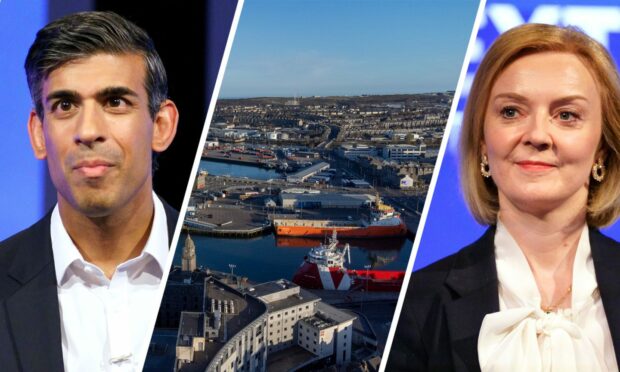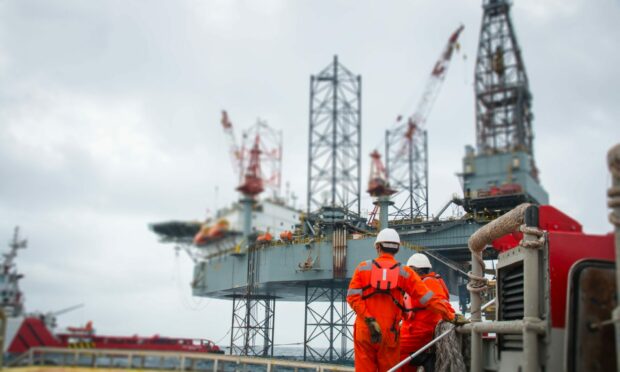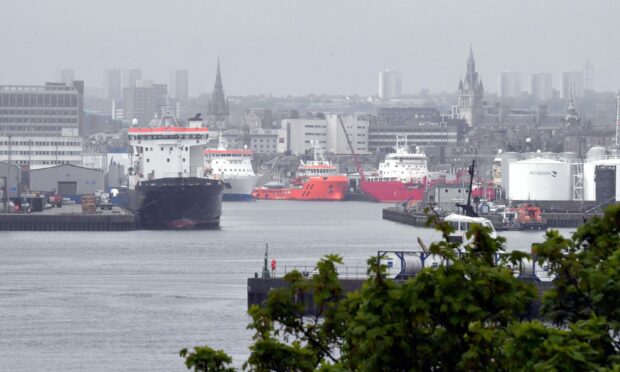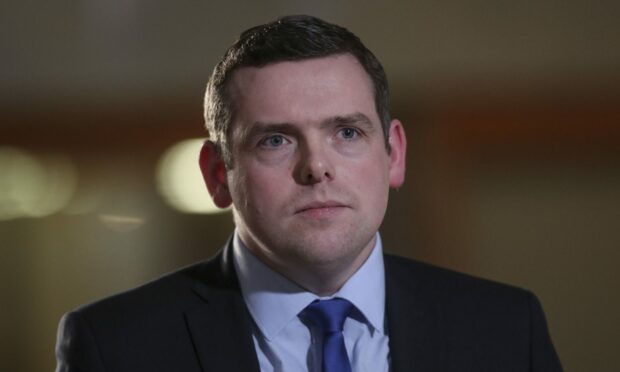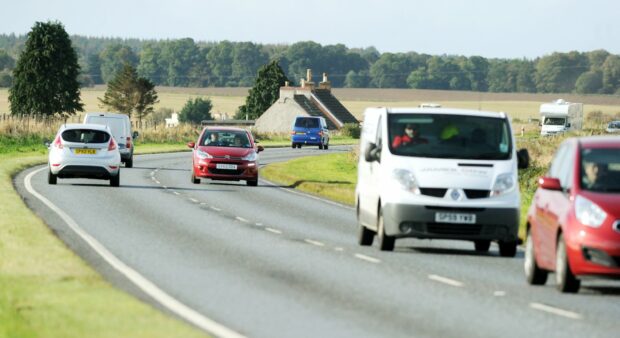Whether it’s Rishi Sunak or Liz Truss, the next prime minister will face a towering in-tray on their first day in the job.
From the ongoing fight over the future of the union to the Conservative party’s sinking fortunes, Boris Johnson’s successor has a lot of work to do in Scotland.
The outgoing prime minister leaves behind major problems and tasks which the new Tory leader will have to address once the dust has settled.
Both Mr Sunak and Ms Truss were in Mr Johnson’s Cabinet but will nonetheless want to position themselves as individuals offering fresh perspectives.
Here are some of the key problems the new UK leader faces across the north and north-east when they have the keys to 10 Downing Street.
1 – What’s next for north-east’s energy sector?
Oil and gas workers will want a PM who puts their money where their mouth is on support for renewables, and a smooth transition from fossil fuels.
The wider industry has been hit by recession, war in Ukraine, surging prices, job losses and windfall tax – and the public backlash during a climate crisis.
Mr Sunak faced criticism from energy bosses for his introduction of the windfall tax, meeting with them for crunch talks in Aberdeen last month.
He has already pledged to reinstate a separate Department for Energy should he become the next prime minister and wants to make the UK “energy independent”.
Despite promises to shift away from fossil fuels, senior Tories want to ramp up production following Russia’s invasion of Ukraine.
The party’s stance on the energy sector has put them at odds with Nicola Sturgeon, who wants to wean the north-east away from oil and gas.
Ms Truss, who has pledged to “start cutting taxes from day one”, warned the ex-chancellor not to bow to pressure to impose the levy on the UK oil and gas sector.
If the north-east is to become a low-carbon energy hub, the next PM will need to do better than the last on new projects.
The UK Government sparked fury last year by rejecting a north-east bid to host a carbon-capture power station.
2 – Levelling Up
Mr Johnson used the loose term “levelling up” to underline one of his main policy goals after becoming Tory leader.
His government’s stated aim was to reduce inequality by giving cash to struggling areas.
Mr Sunak has previously made clear he thinks it is “totally resonable” to bypass Holyrood to directly invest in Scotland as he promised more cash is on its way.
Aberdeen benefited in the first round of funding as the city received £20 million to regenerate the city centre.
Elsewhere, Highland Council is hoping to secure £44 million in funding to invest in road safety and electric vehicle charging points along the NC500.
And Moray has submitted an £18 million bid for cash from the UK Government to spruce up Elgin’s town centre.
Mr Johnson’s successor will have to show they are serious about investing in the north and north-east in the long-term.
In June, Aberdeen and Aberdeenshire submitted a joint application for a low-tax green freeport to be established in the north-east.
Backers of the bid claim it could give a major £7.5 billion boost to the economy by providing up to 32,000 new jobs.
An eco car manufacturer revealed they could employ up to 800 staff if the north-east application succeeds.
A consortium in the Highlands has also put their hat in the ring to bring a freeport to the Inverness and Cromarty Firth areas.
But if other bids are given priority, locals may be left feeling as if they are being ignored by the UK Government.
3 – Building bridges with Douglas Ross
Douglas Ross sparked a Tory civil war by demanding Boris Johnson’s resignation when the partygate scandal escalated in January,
The prime minister’s approval ratings plummeted even further as it emerged he repeatedly broke lockdown rules.
It was a disaster for Mr Ross, the MP for Moray, who flip-flopped on his support and ultimately lack of confidence in the UK leader.
He will be desperate to find an ally in the next prime minister to help show a united front against the SNP’s renewed focus on independence in 2023.
While support for the union remains strong across much of the north and north-east, Mr Johnson’s successor won’t want to get complacent.
The new leader will also need to demonstrate all those Brexit successes Mr Johnson promised.
The fishing industry and local supporters put more faith in the project than elsewhere in Scotland.
4 – Tackling the cost of living crisis
For some voters, party politics and constitutional debates will seem insignificant next to the cost of living crisis which has gripped Britain.
Energy bills will soar this winter and a hard time could lie ahead for families already struggling.
In rural areas in the north and north-east, fuel poverty is already worse than anywhere else in Scotland.
It’s also a region with fewer public transport links, which leaves motorists at the mercy of huge petrol bills.
Mr Sunak offered support to households, but critics warn much more is needed.
The former Chancellor told the Press and Journal just weeks ago that there are no plans for help with the higher energy prices in the north-east and Highlands.
How will that all work if the new leaders are determined to slash taxes for wealthier people?
Ms Truss has vowed to tackle the cost of living crisis on her first day as PM, and plans to help struggling households by lowering tax.
5 – Transport woes
Scotland’s transport infrastructure has been the focus of anger with delayed ferry projects and constant rail disruption.
While transport is run from Holyrood, there are areas where the UK Government maintains some responsibility.
That didn’t stop the UK Government’s proposal to bypass Holyrood and directly fund big-ticket SNP projects like dualling the A96 between Aberdeen and Inverness, or improving the A9.
Senior Tories have been keen to take aim at the SNP over delays to the construction of two new ferries intended to serve island communities.
A recent fact-finding mission explored whether tunnels instead of ferries could soon link Scotland’s islands.
Scotland Office minister Iain Stewart visited the Faroe Islands to find out whether undersea networks could be built in Orkney, Shetland and the Western Isles.
SNP transport minister Jenny Gilruth said she would be “more than willing” to take a look at the UK Government’s findings.
However, estimated costs are high and Westminster would likely need to provide cash along with the Scottish Government and local councils.
One thing you probably won’t get from the next PM is a revival of plans to build a bridge between Scotland and Northern Ireland.
Will the next leader be able to find a way of helping Scotland’s transport mix, or will it become another constitutional battleground on pie-in-the-sky plans?
